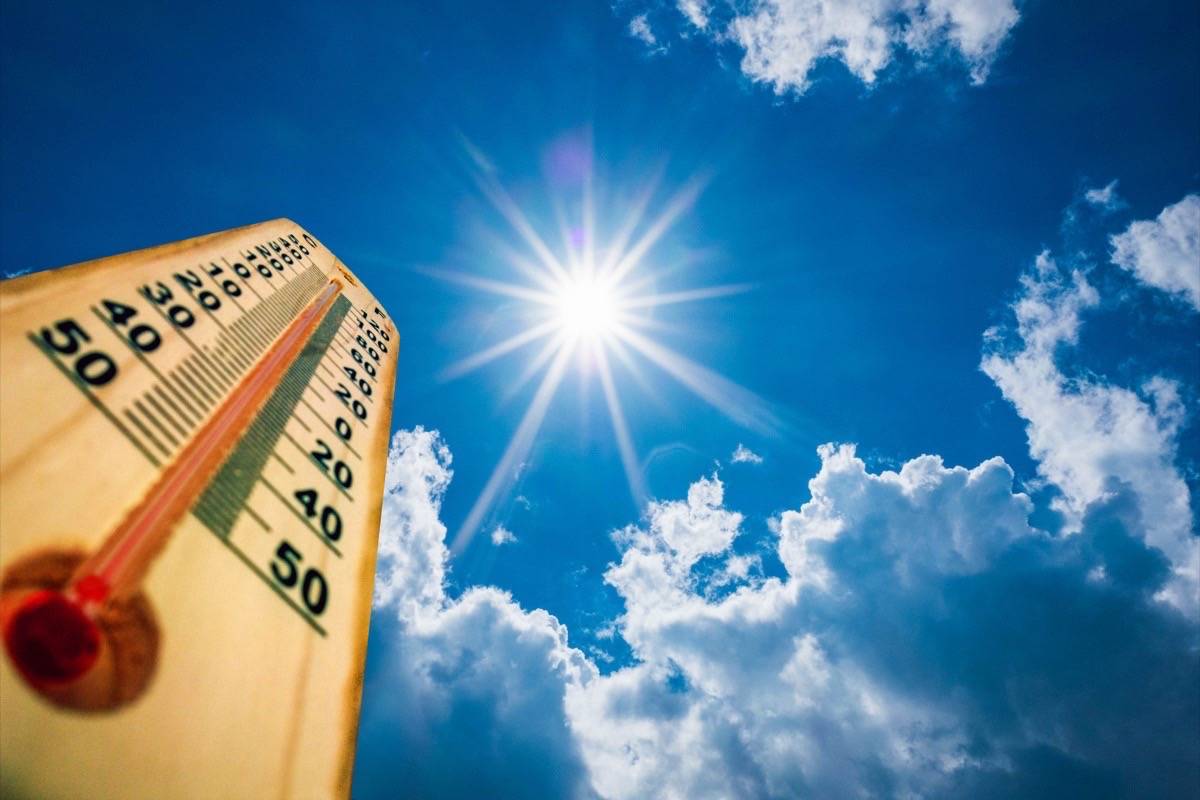The days may be gradually getting shorter, but the temps are set to soar this week as a heat warning has been issued for the Central Alberta region.
According to Environment Canada, an extended period with maximum daily temperatures reaching or exceeding 29C and minimum overnight temperatures of 14C or above is expected to last until at least Friday when the mercury is projected to hit a whopping 37C.
Highs of 30C and 35C are expected Wednesday and Thursday respectively before a cold front sweeps in from the northwest over the weekend pushing temperatures back down to more normal values, said Brian Proctor, a meteorologist with Environment Canada.
“It’s not common, but it’s not unusual,” said Proctor of the heat wave. Normal temperatures this time of year are around the 23C for a daytime high, but that doesn’t mean that significant periods of heat are a rarity in August either.
“The highest temperature we’ve seen on record from the period of 1938 to 2013 for Red Deer was 31.7C in 1964 (on Aug. 7th). So we are approaching those record temperatures,” he said.
For Aug. 8th, the record was 31.7C as well in 1940, and on Aug. 9th the record was 32.3C set in 1991.
For Aug. 10th, the current record is 32.4C which was set in 1983.
“We are likely to break records moving into Thursday and Friday before we cool back down over the weekend,” he said, adding that with the smokier skies these days, the temperatures may be tempered just a bit, too.
He added he wouldn’t be surprised to see some stormy weather on the weekend when the cold front collides with the outgoing hot mass. “The trigger in this case would be that cold front coming in.”
Proctor said things could cool down to below seasonal by Sunday, but then start to warm up again at the start of next week. But it’s not going to get as hot then as it will this week. “It will probably be the mid to upper 20s.”
In the meantime, residents of and visitors to the area are advised to reschedule outdoor activities to cooler hours of the day.
It’s also recommended that folks take frequent breaks from the heat, to spend time indoors at cooled buildings (including malls or indoor pools) and to drink plenty of water and other non-alcoholic, non-caffeinated beverages to stay hydrated.
“It’s really important that people limit their exposure to these kinds of temperatures,” he said.
Officials also warn residents to monitor for symptoms of heat stroke or heat exhaustion, such as high body temperature, lack of sweat, confusion, fainting, and unconsciousness.
Particular vigilance is urged for vulnerable individuals, including children, seniors, individuals with pre-existing lung, heart, kidney, nervous system, mental health or diabetic conditions, outdoor workers, as well as those who are socially isolated.



